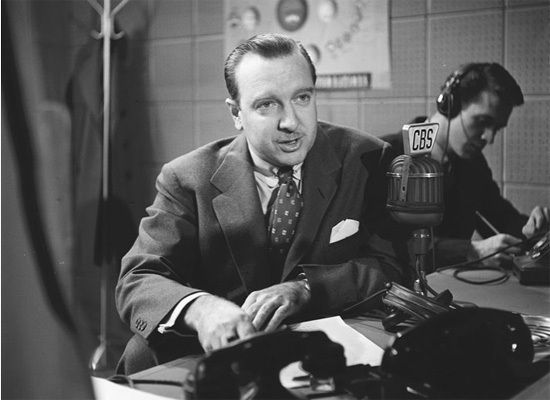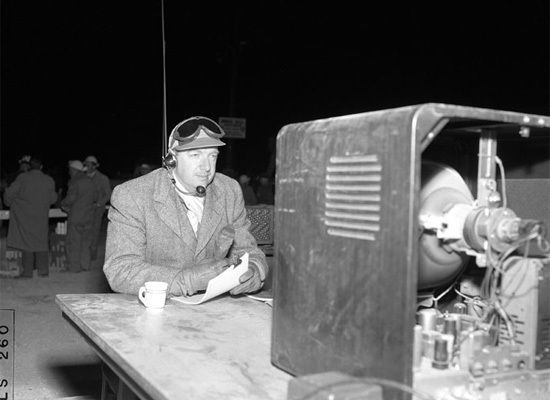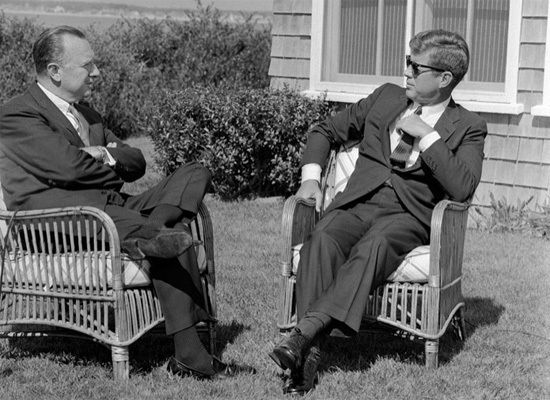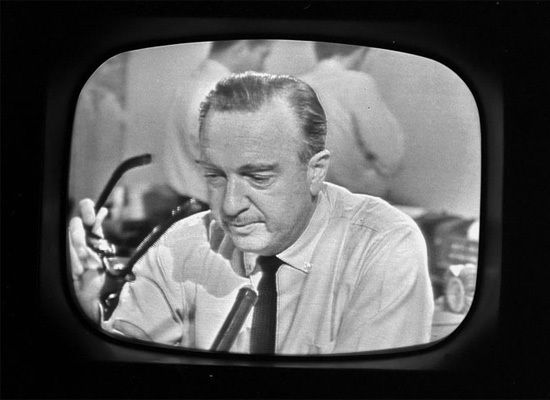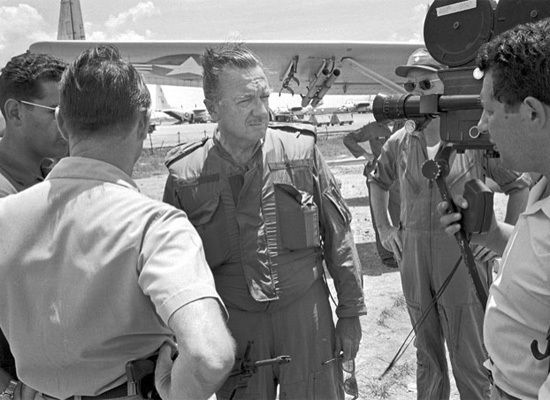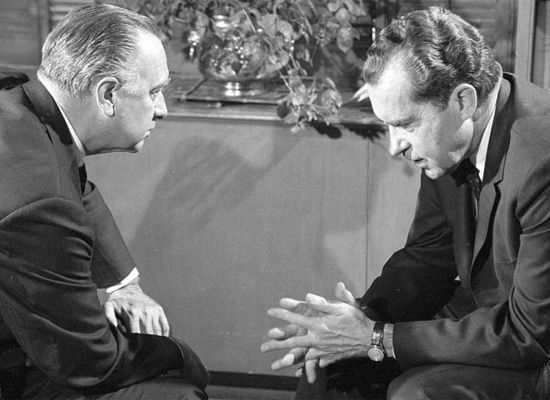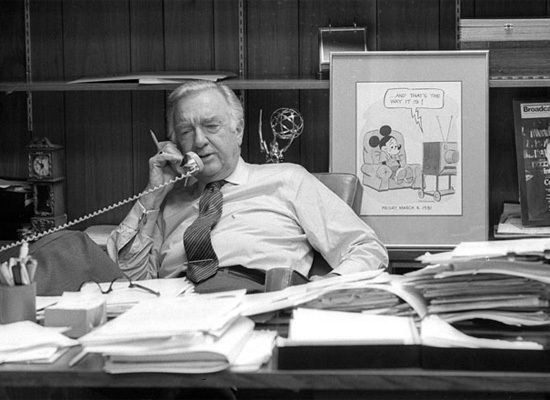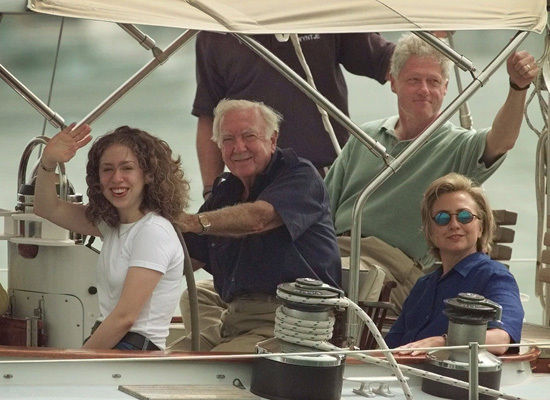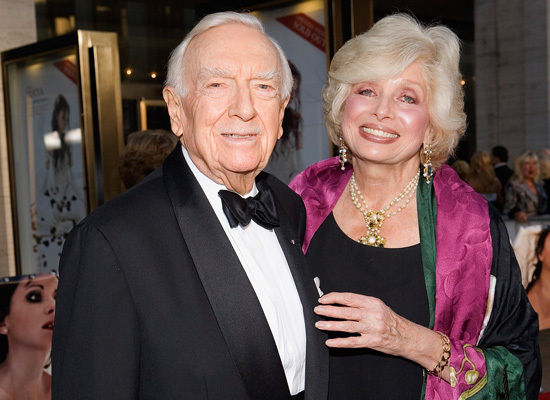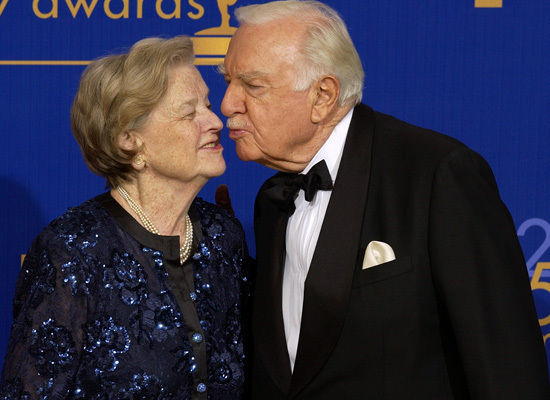Ab-Titchaz
JF-Expert Member
- Jan 30, 2008
- 14,631
- 4,225
Former CBS anchor 'Uncle Walter' Cronkite dead at 92

By Todd Leopold
(CNN) -- Walter Cronkite, the CBS anchorman known as "Uncle Walter" for his easygoing, measured delivery and "the most trusted man in America" for his rectitude and gravitas, died Friday night in his New York home, CBS reported.
Cronkite was 92.
"Walter was always more than just an anchor. He was someone we could trust to guide us through the most important issues of the day; a voice of certainty in an uncertain world," President Obama said in a statement Friday.
"He was family. He invited us to believe in him, and he never let us down. This country has lost an icon and a dear friend, and he will be truly missed."
His career spanned much of the 20th century, as well as the first decade of the 21st.
The native of St. Joseph, Missouri, broke in as a newspaper journalist while in college, switched over to radio announcing in 1935, joined the United Press wire service by the end of the decade and jumped to CBS and its nascent television news division in 1950.He also made his mark as an Internet contributor in his later years with a handful of columns for the Huffington Post.
"He was the consummate television newsman," Don Hewitt, the onetime executive producer of the "CBS Evening News," told CNN. "He had all the credentials to be a writer, an editor, a broadcaster. There was only one Walter Cronkite, and there may never be another one."
Cronkite covered World War II's Battle of the Bulge, the Nuremberg trials, several presidential elections, moon landings, the assassination of President John F. Kennedy and the Watergate scandal of President Richard Nixon's administration.
At times he even made news: A 1977 question to then-Egyptian President Anwar Sadat about Sadat's intent to go to Israel -- at the time considered a nonstarter because of the lack of a treaty between the two countries -- received a surprising "yes" from the Egyptian leader.
Soon after, Sadat traveled to Jerusalem, a trip that eventually led to the Camp David Accords, which included a peace deal between Israel and Egypt.
At his height of influence as CBS anchorman, Cronkite's judgment was believed so important it could affect even presidents. In early 1968, after the Tet Offensive, Cronkite traveled to Vietnam and gave a critical editorial calling the Vietnam War "mired in stalemate."
Noting Cronkite's commentary, President Lyndon Johnson reportedly said, "If I've lost Cronkite, I've lost Middle America." Johnson announced he would not seek re-election less than two months later.
Cronkite's own name was often floated as a presidential possibility -- wishful thinking on the part of some pundits, because Cronkite had little desire to enter politics once he'd become a successful anchorman.
He became, however, an outspoken critic of what he saw as flaws in government and broadcast journalism. He disliked the current war in Iraq, telling Esquire magazine, "Indeed, we are in another Vietnam. Almost play by play. It's a terrible mistake that we're in Iraq, and it's a terrible mistake to insist on staying there."
And he disliked the corporatization of news.
"The nation whose population depends on the explosively compressed headline service of television news can expect to be exploited by the demagogues and dictators who prey upon the semi-informed," he wrote in his 1996 memoir, "A Reporter's Life."
In a 2005 interview with CNN's Wolf Blitzer, he observed, "The misfortune with broadcasting today is that all -- even including your network, which is dedicated to the news -- do not take enough time to give us all of the facts and the background."
"Walter was truly the father of television news. The trust that viewers placed in him was based on the recognition of his fairness, honesty and strict objectivity," said "60 Minutes" correspondent Morley Safer in a statement.
"And of course, his long experience as a shoe-leather reporter covering everything from local politics to World War II and its aftermath in the Soviet Union."
Mike Wallace, "60 Minutes" correspondent emeritus, said simply: "We were proud to work with him -- for him -- we loved him."
Former CBS anchor 'Uncle Walter' Cronkite dead at 92 - CNN.com
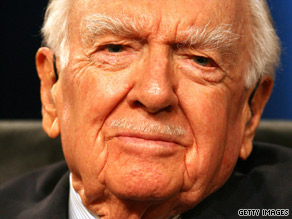
(CNN) -- Walter Cronkite, the CBS anchorman known as "Uncle Walter" for his easygoing, measured delivery and "the most trusted man in America" for his rectitude and gravitas, died Friday night in his New York home, CBS reported.
Cronkite was 92.
"Walter was always more than just an anchor. He was someone we could trust to guide us through the most important issues of the day; a voice of certainty in an uncertain world," President Obama said in a statement Friday.
"He was family. He invited us to believe in him, and he never let us down. This country has lost an icon and a dear friend, and he will be truly missed."
His career spanned much of the 20th century, as well as the first decade of the 21st.
The native of St. Joseph, Missouri, broke in as a newspaper journalist while in college, switched over to radio announcing in 1935, joined the United Press wire service by the end of the decade and jumped to CBS and its nascent television news division in 1950.He also made his mark as an Internet contributor in his later years with a handful of columns for the Huffington Post.
"He was the consummate television newsman," Don Hewitt, the onetime executive producer of the "CBS Evening News," told CNN. "He had all the credentials to be a writer, an editor, a broadcaster. There was only one Walter Cronkite, and there may never be another one."
Cronkite covered World War II's Battle of the Bulge, the Nuremberg trials, several presidential elections, moon landings, the assassination of President John F. Kennedy and the Watergate scandal of President Richard Nixon's administration.
At times he even made news: A 1977 question to then-Egyptian President Anwar Sadat about Sadat's intent to go to Israel -- at the time considered a nonstarter because of the lack of a treaty between the two countries -- received a surprising "yes" from the Egyptian leader.
Soon after, Sadat traveled to Jerusalem, a trip that eventually led to the Camp David Accords, which included a peace deal between Israel and Egypt.
At his height of influence as CBS anchorman, Cronkite's judgment was believed so important it could affect even presidents. In early 1968, after the Tet Offensive, Cronkite traveled to Vietnam and gave a critical editorial calling the Vietnam War "mired in stalemate."
Noting Cronkite's commentary, President Lyndon Johnson reportedly said, "If I've lost Cronkite, I've lost Middle America." Johnson announced he would not seek re-election less than two months later.
Cronkite's own name was often floated as a presidential possibility -- wishful thinking on the part of some pundits, because Cronkite had little desire to enter politics once he'd become a successful anchorman.
He became, however, an outspoken critic of what he saw as flaws in government and broadcast journalism. He disliked the current war in Iraq, telling Esquire magazine, "Indeed, we are in another Vietnam. Almost play by play. It's a terrible mistake that we're in Iraq, and it's a terrible mistake to insist on staying there."
And he disliked the corporatization of news.
"The nation whose population depends on the explosively compressed headline service of television news can expect to be exploited by the demagogues and dictators who prey upon the semi-informed," he wrote in his 1996 memoir, "A Reporter's Life."
In a 2005 interview with CNN's Wolf Blitzer, he observed, "The misfortune with broadcasting today is that all -- even including your network, which is dedicated to the news -- do not take enough time to give us all of the facts and the background."
"Walter was truly the father of television news. The trust that viewers placed in him was based on the recognition of his fairness, honesty and strict objectivity," said "60 Minutes" correspondent Morley Safer in a statement.
"And of course, his long experience as a shoe-leather reporter covering everything from local politics to World War II and its aftermath in the Soviet Union."
Mike Wallace, "60 Minutes" correspondent emeritus, said simply: "We were proud to work with him -- for him -- we loved him."
Former CBS anchor 'Uncle Walter' Cronkite dead at 92 - CNN.com
